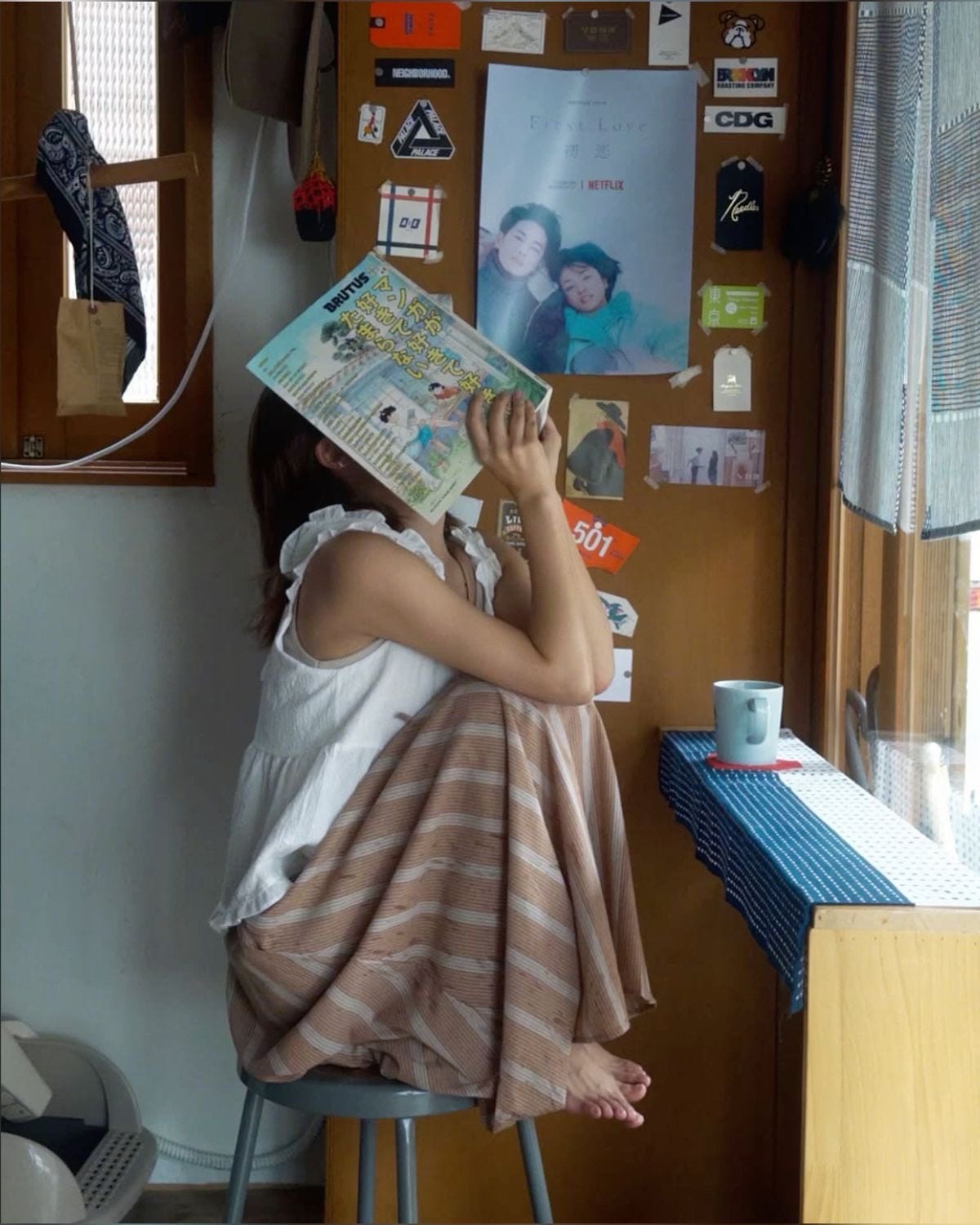some days, i’m not tired because i’ve done too much. i’m tired because i’ve felt too much. not in a dramatic, crying-on-the-floor way. not in a movie montage kind of way. just… in a thousand quiet, emotional calculations that run silently under everything else. the way you can be doing something simple—making dinner, sending a text, taking a walk—but beneath it all, you’re managing something invisible. remembering, anticipating, softening, adjusting. emotional multitasking. that’s what i’ve started calling it.
it’s the way you’re in a conversation but also assessing how your words will land. it’s holding space for someone while slowly processing your own trigger in the background. it’s sending a voice note while thinking about tone and timing and delivery. it’s existing in the world and carrying the extra weight of caring. of nuance. of emotional literacy. you’re emotionally bilingual—fluent in your own feelings and in everyone else’s, too.
no one ever taught us that sensitivity is not a soft trait—it’s a labor-intensive one. and when you’re emotionally aware, you don’t just feel your own things. you track them. narrate them. hold them. and then you try to make them easier for others to digest. like translating your mess into something poetic. or softening the edges of your sadness so you don’t sound “too much.” and the world? the world loves that version of you. the palatable one. the self-aware one. the one who feels everything and still makes it make sense.
and you do it. because you can. and because it keeps things smoother. it makes relationships easier. but it doesn’t make you less tired. because underneath the surface of that skill, there’s a quiet depletion building. it’s not a breakdown kind of tired. it’s more like… a flickering light. the kind that’s still on, but not quite bright.
the thing is—emotional multitasking isn’t something you can see. it doesn’t look like exhaustion. it looks like presence. attentiveness. thoughtfulness. it looks like you, nodding at the right moments, smiling gently, responding carefully. it looks like balance. and that’s what makes it so easy to miss. no one sees the cost. not even you, sometimes.
you don’t realize how loud your inner world has become until you sit in silence and realize you haven’t truly been still in weeks. you’ve rested, yes. but you haven’t let go. not really. because even in your downtime, your mind is still running through what you said, how you said it, what they meant, whether you were too much or too distant or too sensitive or too honest. the tabs never really close. they just sit quietly, draining your energy in the background.
sometimes, it’s not the world that’s exhausting—it’s the emotional logistics of being in it. it’s managing your reactions, your empathy, your softness, your edges, your timing. it’s trying to be understood without overexplaining. it’s trying to be loved without shrinking. it’s trying to be consistent while everything inside you is shifting.
and even when you do rest—like, real rest—there’s often a lag. like your body doesn’t believe it yet. like your nervous system is still catching up. you sit down to do nothing and your brain starts sorting: emotions, tasks, conversations, people, patterns. like you’ve been trained to fill every quiet moment with inner commentary. you don’t even notice you’re doing it until you feel… foggy. depleted. overstimulated by your own interiority.
and here’s the part no one tells you: emotional awareness can make you lonelier, not closer. because when you know how to name your own needs, people expect you to meet them yourself. when you can explain your feelings, people assume you’re not hurting. when you’re good at holding space, people forget you need space to be held, too. your competence becomes your invisibility. your depth becomes your silence.
you become the person everyone relies on. the one who can always be trusted to stay calm, to offer insight, to be okay. and when you’re not okay, it’s jarring. not just for others—but for you, too. because you’ve built a version of yourself that’s built to carry. and letting it all go feels like you’re letting someone down. even if that someone is you.
but emotional strength is not emotional capacity. it doesn’t mean you can carry everything all the time. it just means you’ve learned how to not let it spill. and while that’s useful—it’s also heavy. and eventually, it wears down the parts of you that used to feel light.
you get tired not from one big thing, but from all the small things you never named. the tone you adjusted. the smile you held. the story you edited. the emotion you held back because you didn’t want to ruin the moment. the presence you gave when you had none left for yourself.
and what do we do when we burn out like this? we often blame ourselves. we say we need to be more productive, more disciplined, more intentional. we build systems, write routines, light candles, track moods, and call it self-care. and it helps—for a moment. but then we return to the same habits. the same patterns of over-holding, over-managing, over-understanding. because rest isn’t just about time—it’s about permission.
emotional rest requires something harder: the willingness to be misunderstood. to not perform composure. to stop translating your feelings into something gentle. to say, “i’m not okay” without wrapping it in softness. to admit you don’t always want to be wise. or useful. or kind. sometimes you just want to be real. messy. half-baked. quiet. undone.
and the people who love you—they’ll adjust. they’ll learn how to sit in that silence with you. and if they don’t? then maybe it’s not your job to carry the relationship all the way to the shore.
because being emotionally fluent doesn’t mean you owe the world clarity at the expense of your own peace. and if the background noise of emotional multitasking is always on… you’ll never hear yourself think. you’ll never find the stillness beneath the narration. you’ll always be managing instead of resting. surviving instead of being.
and you deserve more than that.










You have crawled into my brain, thank you ❤️
to the emotional multitaskers, we’re in this together :’)